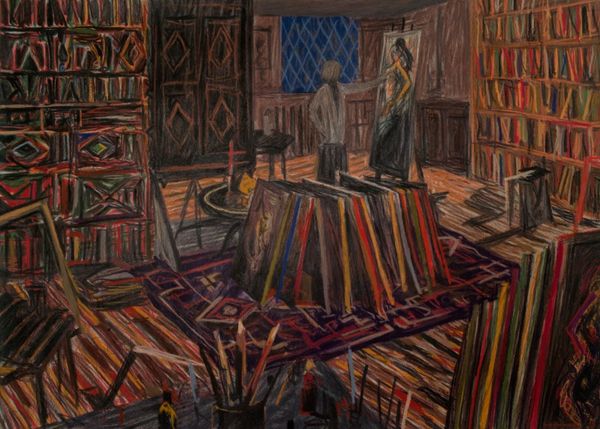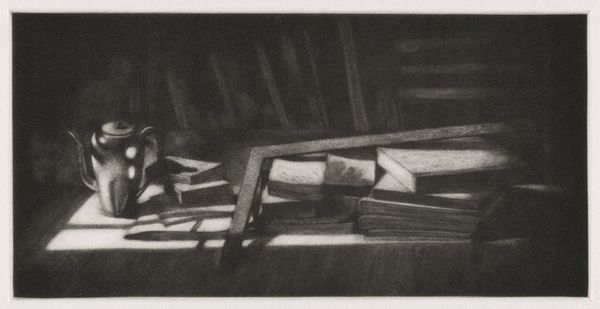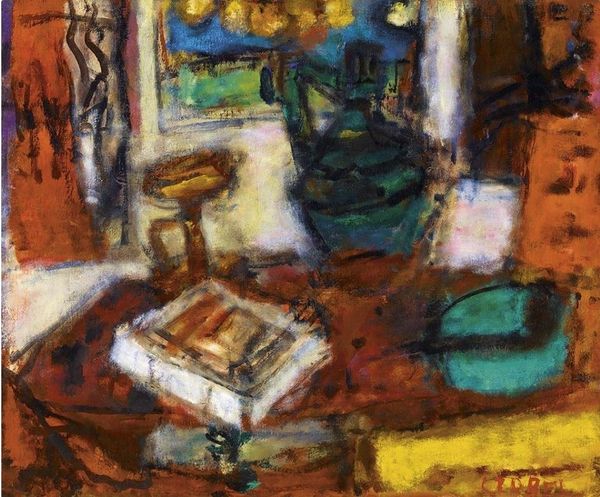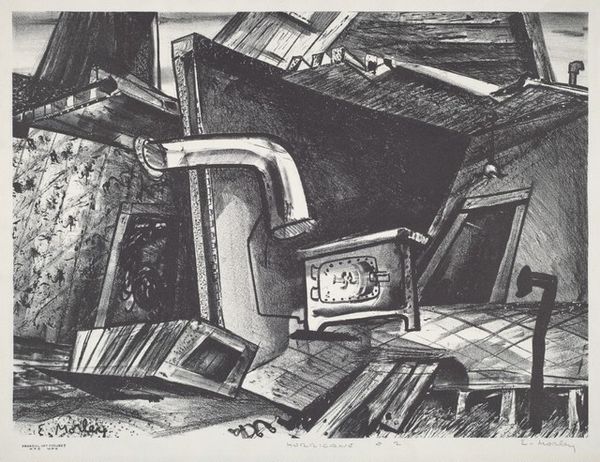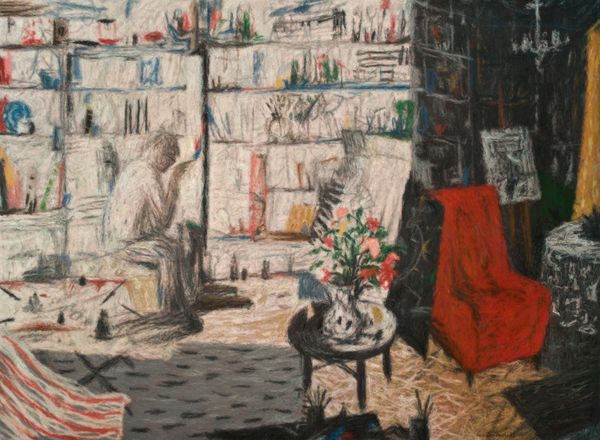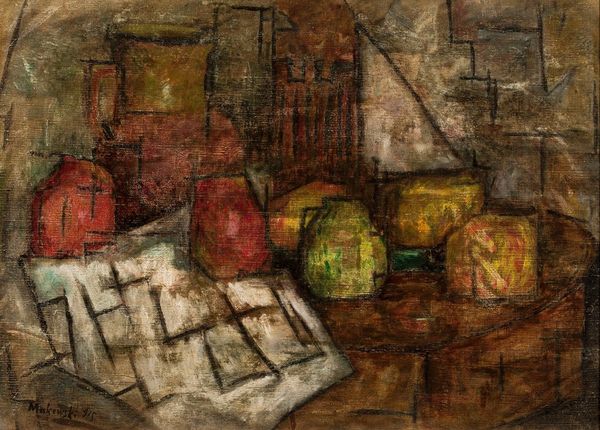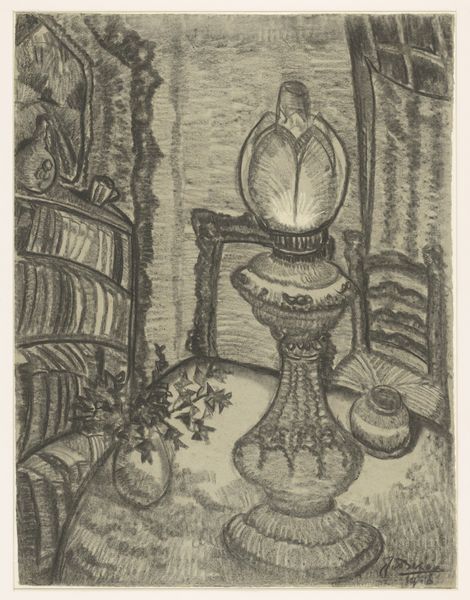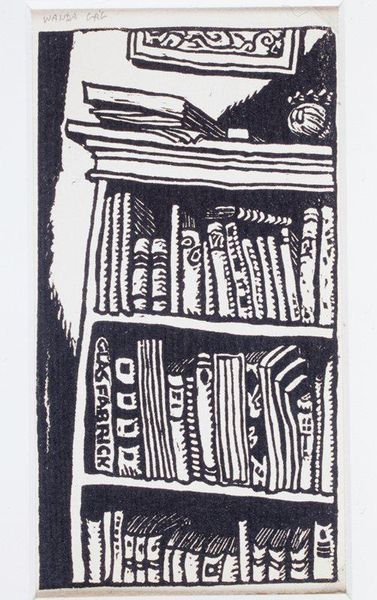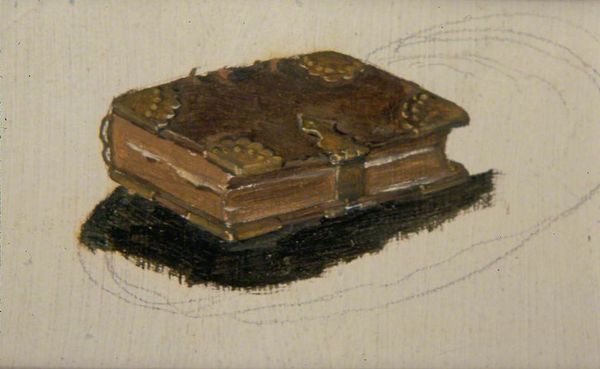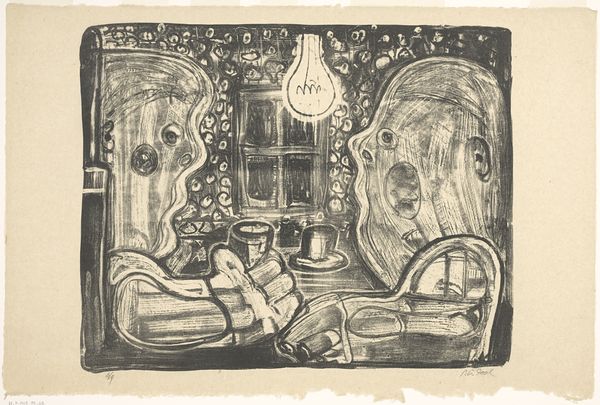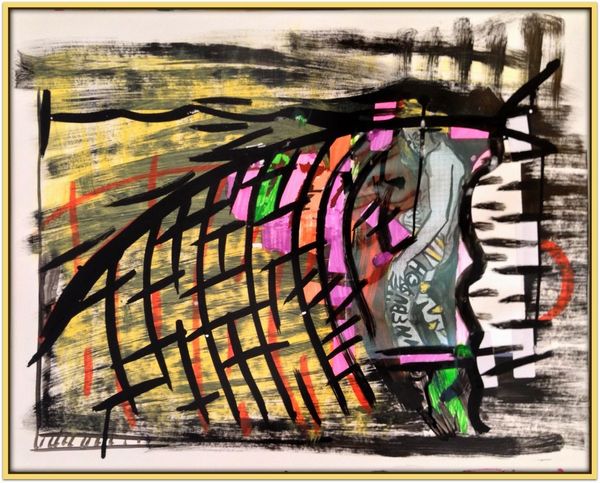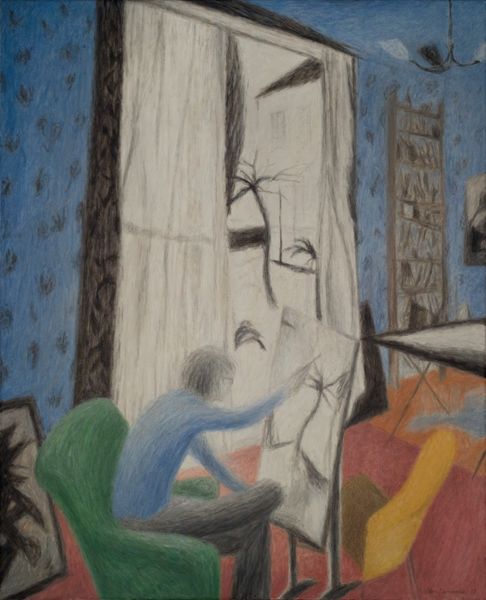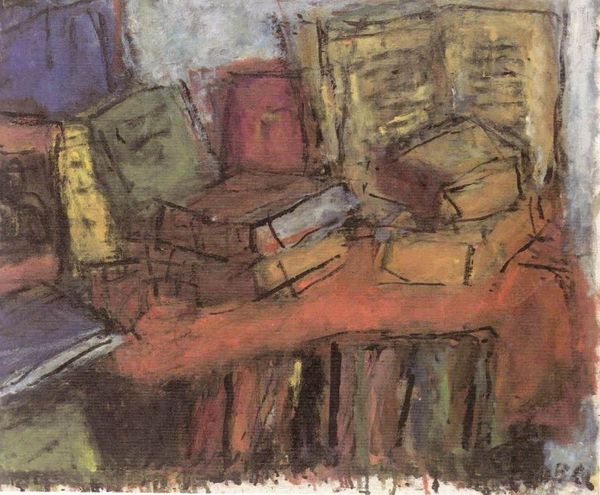
Dimensions: support: 404 x 480 mm
Copyright: © The estate of Leslie Hurry | CC-BY-NC-ND 4.0 DEED, Photo: Tate
Editor: Leslie Hurry’s "Medea's House, Corinth" is an evocative drawing, full of classical motifs rendered in a somewhat nightmarish style. What do you see in this piece, and how does it relate to the Medea myth? Curator: The architectural rendering, seemingly Corinthian, is destabilized by the vortex on the left, suggesting Medea's inner turmoil and perhaps the chaos she inflicts. The purple columns could symbolize royalty but also bruising, hinting at Medea's pain and rage. What do you make of the fractured perspective? Editor: It feels disorienting, as if the house itself is a reflection of Medea's fractured psyche. Curator: Exactly. Hurry presents Medea not just as a mythical figure, but as a woman driven to extreme actions by patriarchal betrayal. Considering the mid-20th century context, does this resonate with contemporary feminist interpretations of the myth? Editor: Absolutely. It reframes Medea's infanticide as a desperate act within a system designed to disempower her. It's made me see it in a new light.
